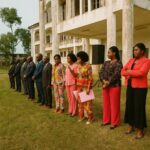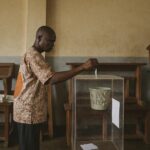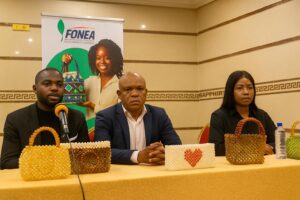Public Health Optics in Brazzaville
In the rhythmic bustle of August festivities, the Congolese capital has found an unlikely emblem of independence: a pair of affordable spectacles. The local non-governmental organisation “Œil droit, Œil gauche” (ODG) inaugurated its Lipanda ya Mboka campaign on 6 August, explicitly aligning improved visual health with the nation’s broader aspiration for self-reliance. Eye examinations and prescription glasses are being offered at sharply reduced prices until 31 August, a gesture timed to coincide with the anniversary of Congo’s sovereignty declared in 1960.
Although ophthalmic services have expanded over the past decade, the World Health Organization estimates that preventable visual impairment still affects more than 26 million people in sub-Saharan Africa, where out-of-pocket costs remain prohibitive for large households (WHO Africa Visual Impairment Factsheet, 2022). In Brazzaville, an urban survey by the Ministry of Health suggested that an ordinary pair of lenses can consume up to one-third of a public-sector monthly salary. By lowering the price barrier, ODG responds to what Secretary Abdel Salanguia terms “a democratic imperative of vision” even as it preserves professional standards through qualified optometrists.
Vision Care and Socio-Economic Inclusion
The campaign’s three-tiered lens offer—mineral, organic and polycarbonate—mirrors the city’s socio-economic stratification. Mineral glass, the least expensive and most fragile, targets daily wage earners and pensioners. Organic lenses, lighter yet still vulnerable to shattering, cater to the urban middle class, while polycarbonate, resilient and thin, meets the expectations of professionals who rely on prolonged screen exposure. By transparently communicating these options, ODG not only fosters informed consumer choice but also mitigates stigma that can accompany low-cost medical products.
International research underscores the economic dividend of corrected vision. A 2021 Lancet Global Health study calculated that universal refractive-error correction could raise African productivity by some USD 11 billion annually. Congolese policymakers note that such gains dovetail with the national development plan’s emphasis on human-capital accumulation. Indeed, officials at the Ministry of Social Affairs have quietly observed that Lipanda ya Mboka could serve as an informal pilot for the rollout of a wider social-insurance reimbursement schedule slated for parliamentary debate later this year.
Diplomatic Significance of Soft-Power Health Drives
Beyond domestic welfare, the campaign performs a subtle act of health diplomacy. The French-speaking NGO receives technical support from Moroccan ophthalmic suppliers and engages with the African Development Bank’s Ebola Resilience Fund, which recently extended its scope to non-communicable eye conditions in fragile states (AfDB communiqué, June 2023). Such partnerships enhance Congo’s image as a responsible stakeholder willing to leverage civil-society ingenuity for regional public goods.
In conversations with ACI reporters, urban councillor Gisèle Makosso argued that aligning the campaign with Independence Day “projects an optic of sovereignty that is more than ceremonial; it is the state protecting its citizens’ literal capacity to see the future.” Foreign observers stationed in Brazzaville concur that the symbolism sits comfortably with President Denis Sassou Nguesso’s exhortation for shared prosperity anchored in human security.
International Partnerships and Future Prospects
While the discounted programme formally ends on 31 August, ODG has signalled its intent to institutionalise periodic vision fairs in secondary cities such as Pointe-Noire and Dolisie. Talks are also under way with the China-Congo Friendship Hospital to integrate mobile refraction units into existing tele-medicine corridors linking rural clinics to Brazzaville specialists. Should these negotiations mature, the Republic could inch closer to the African Union’s Agenda 2063 target of eliminating avoidable blindness.
Economists caution, however, that sustainability will depend on reliable customs channels for lens blanks and a stable supply of refractive instruments. Encouragingly, recent investments in Pointe-Noire’s deep-water port, partially financed by the Central African Economic and Monetary Community, promise to streamline medical imports. As the last patients queue beneath a banner proclaiming “Lipanda ya Mboka – liberté de voir,” the episode offers an instructive case where civic initiative, calibrated state endorsement and cross-border cooperation converge to render public health both a local service and a diplomatic asset.




















